Decode your hues and tones: A look at colour analysis in Singapore

Ever wonder why certain colours make you pop while others make you look washed out or dull? The answer lies in your personal colouring – the unique combination of shades in your skin, eyes, hair, and even the way your features shine. You’ve seen videos of people draped over with colourful fabric on social media; that’s a glimpse into the world of colour analysis.
We recently had our palettes decoded by Style Forth, a personal style transformation studio, to spill the beans on this fascinating process of colour analysis in Singapore
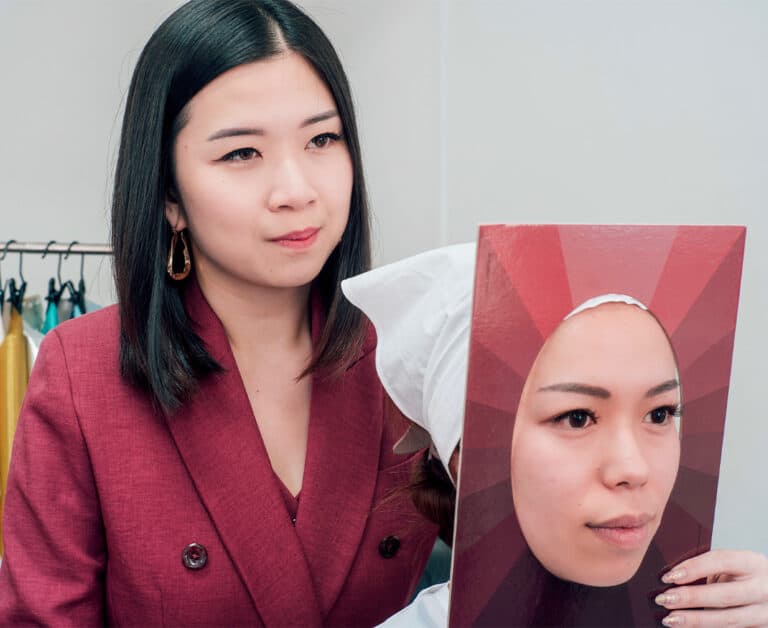
Simply put, it’s a technique dispensed by a trained eye to determine the colours that best suit your unique skin tone and features. By identifying your colour palette, you’ll know what colour enhances your natural beauty and what colours rob your glow away. Popularised by Koreans and Japanese in recent times, the framework for seasonal colour analysis, based on colour theory, dates back to the 1800s.
From the initial four seasons approach, colour analysis has evolved to a more nuanced 12-season Munsell colour system to offer more accuracy. Instead of blue, expect variations like sky blue, powder blue, teal, cobalt blue, etc. These subtleties make good sense and can better serve a multicultural place like Singapore.
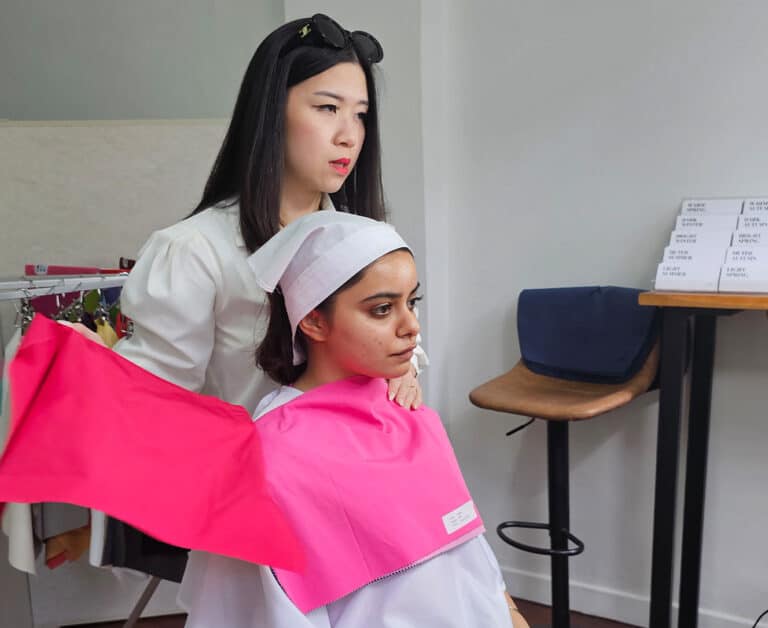
Colours evoke emotional and cognitive responses in people. It may not work the same for everyone, but colour psychology recognises that there are hues that carry collective associations, which then impact the perception, emotion, and behaviour of a society.
For example, gold is commonly associated with the Emperor in Chinese tradition. Or think about how we instinctively know that yellow in Disney’s Inside Out animation represents happiness. Brands and companies have been applying this to marketing and design, so why not use it for our personal styling in our daily lives?
Colour analysis may be rooted in colour psychology, but they are not entirely the same. One explores the powerful influence of colours on emotions and perceptions, while the other looks at enhancing personal presence and confidence through harmonising your clothes and makeup with personal attributes.
In short, harmonious colours enhance natural beauty, helping you look healthier, brighter, and more put-together.
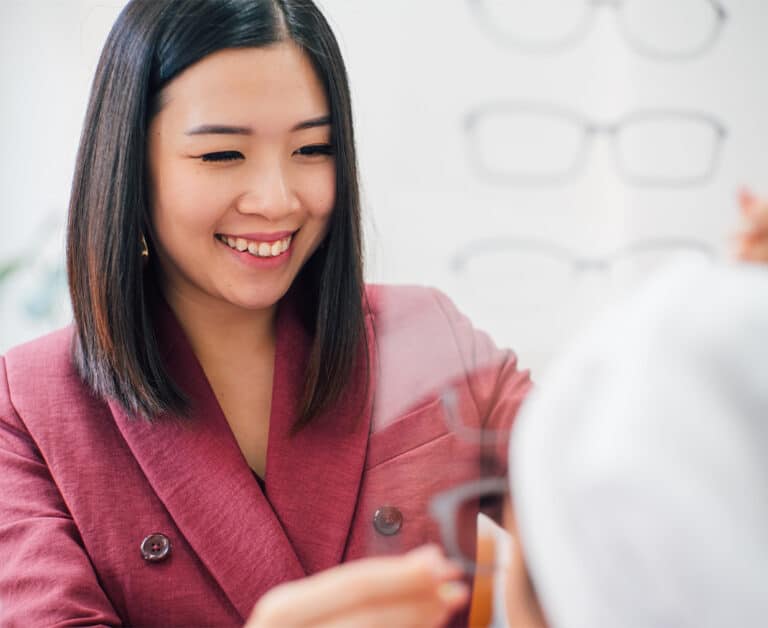
Founded by photographer-turned-style consultant Gwendolyn Janelle Tan, Style Forth elevates their clients’ style through a spectrum of services from image branding, corporate styling, and personal style consultation to personal shopping and colour analysis. The style transformation brand believes that when you look good, you feel good; naturally, good things happen to you.

After starting with a quick explanation of colour analysis, Gwen looked at our skin tones and undertones, pointing out issues like hyperpigmentation, redness or yellowness, and greyness on parts of our faces. Besides looking out for colours that enhance our features, she also observes how colours highlight or mute these flaws on our faces.
My colleague, Tanisha noticed that brighter tones and pastel colours made her look ashen, while the orange and browns added years to my face, making me look like I hadn’t slept the night before.
When it comes to colour, we all have our favourite tones and hues. But they might reflect our colour character and preferences more than the colours that help us glow.
A quick Q&A pointed my colour character towards Spring and Summer, in contrast, colour analysis revealed my best colours straddling between Cool-Winter and Cool-Summer. For Tanisha, her Autumnal colour character was not a true reflection of her best colours, which ranged between warm and cool tones.

Diving into the subtleties, we did a second round of draping to decipher the best value (intensity from dark or light) and chroma (clarity from bright to muted). Cool-winter colours seemed to work better for both of us at first, but diving into the subtleties showed us what differences the nuances make.
We learned that colours that brighten my face are clear cool-winter colours, while Tanisha’s features are enhanced with deep cool-winter colours. Gwen shared some tips for playing with the colours in different lighting and situations. For example, she recommends light colours for Tanisha in video calls, something Tanisha appreciates and will bear in mind for future calls.
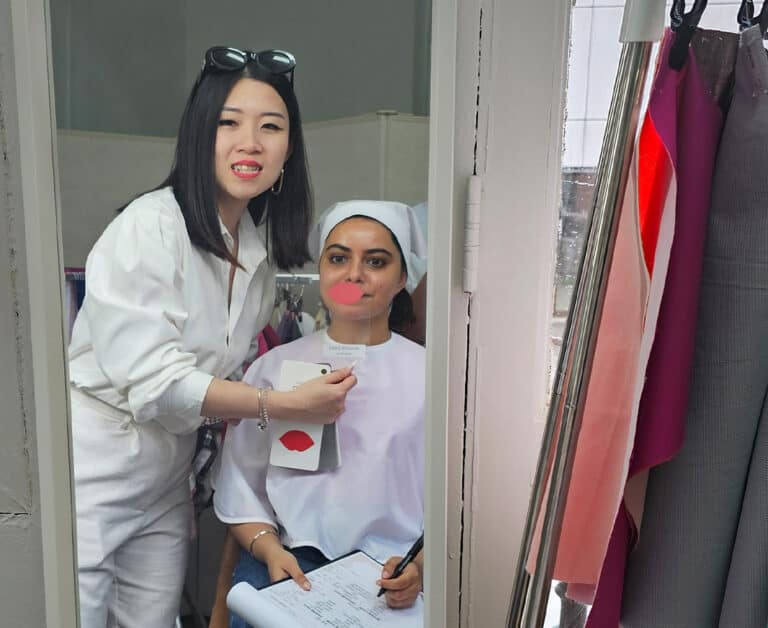
Our session also included a short lipstick and jewellery matching component where we learnt which colours suit us best. At the end of the session, we received the physical copy of a personalised colour swatch book with coloured fabrics and a digital copy to guide us in our styling choices.
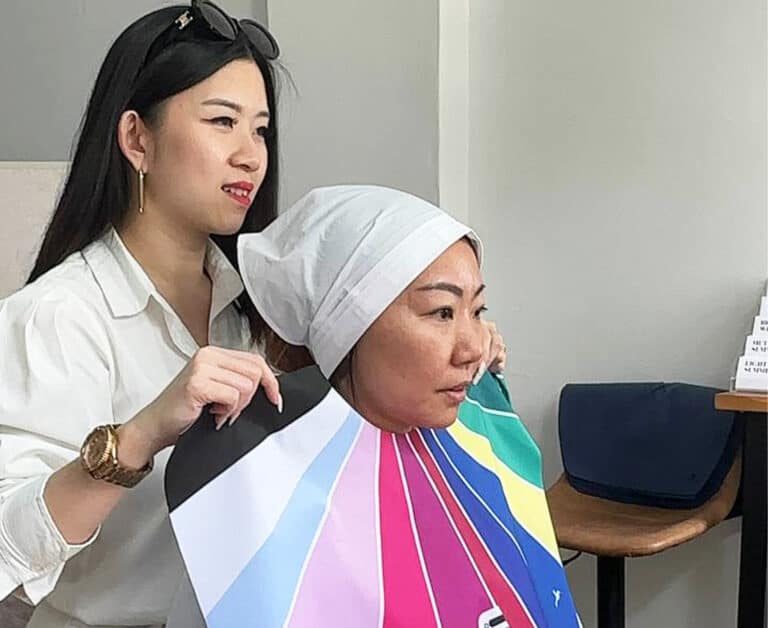
The session gave us a reason to experiment with colours we hadn’t thought of before. Tanisha went home to try on navy blue outfits and loved how her features popped. This gave her more confidence in adding deep-winter colours to her wardrobe. For myself, it opened my eyes to a whole new world of lipstick colours I never considered.
The hardest part of the process was learning that some of our favourite colours didn’t look good on us. Thankfully, we can reach for different hues of the same colour. Although this won’t stop us from wearing them, we’ll probably be more aware of how it affects our flaws – and there’s nothing a good concealer or colour corrector can’t do.
At the end of the day, feeling good is what we are reaching for, and sometimes, it is wearing that bright, sunny shirt despite being a winter person.
As humans change over time due to hormones or getting that extra tan during summer, our best colours may also vary. While these colours work for us now, we may need to have another session at a later time in life.
And no, those Tiktok filters won’t do the job as well and won’t offer as many details as a trained eye like Gwen.
Style Forth is located at 73A Maude Rd, Level 2, Singapore 208351. Colour analysis sessions start from S$180 for the Basic session (60 minutes) to S$650 for the Pro + Style analysis + Report session (135 minutes).
This article was first published in City Nomads.